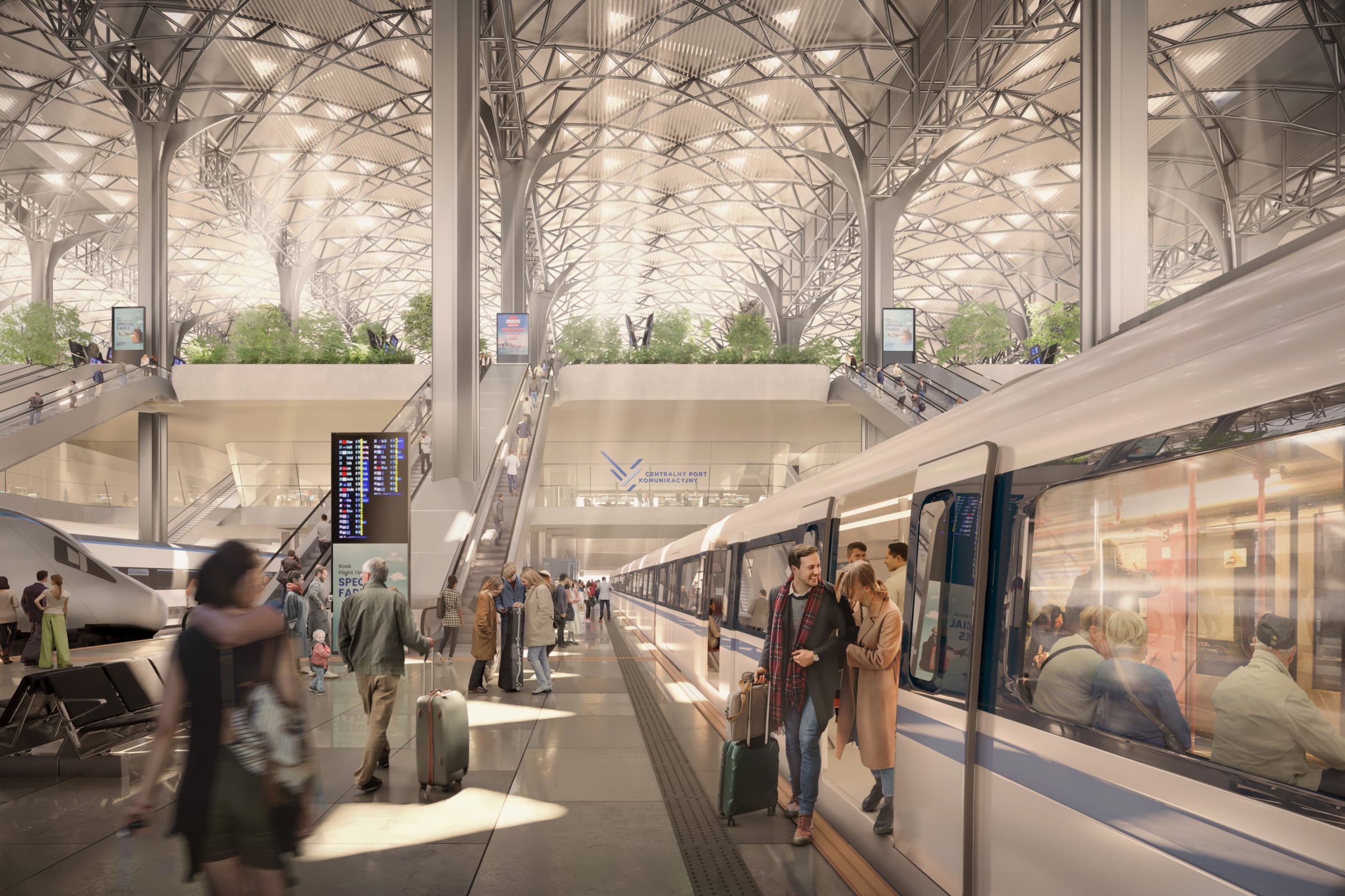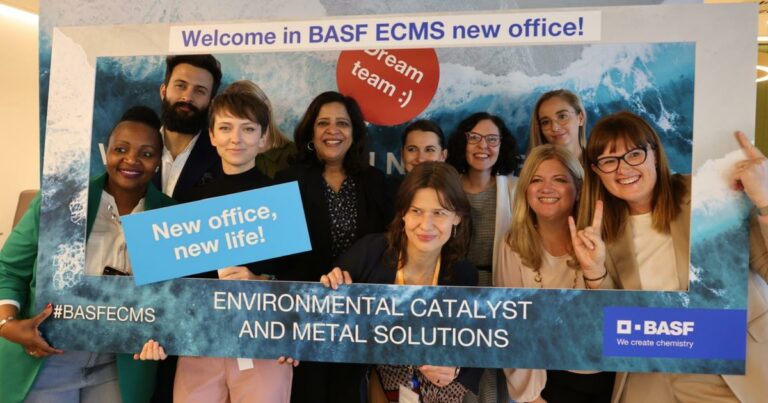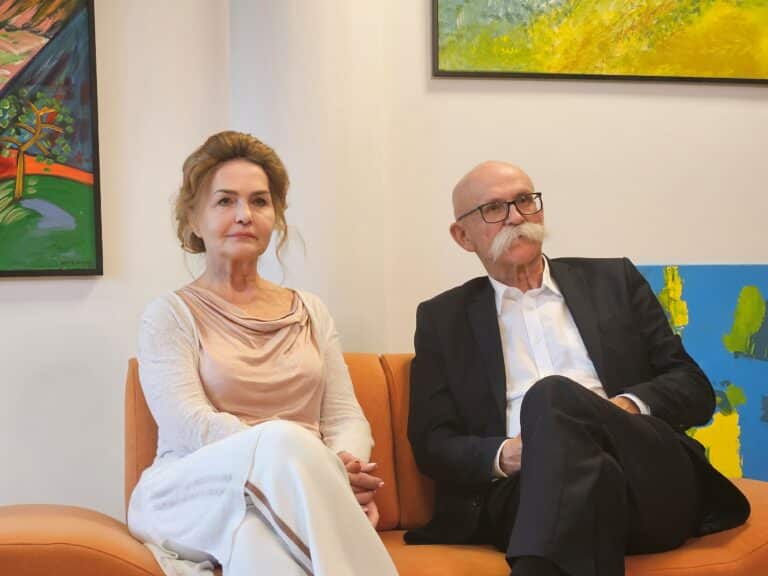SUSTAINABILITY: THE FOUNDATION STONE FOR CPK
The design of the Centralny Port Komunikacyjny (CPK) – Poland’s CPK Airport – incorporates stateof-the-art technologies, with sustainability at the heart of the huge project. ”Sustainability is one of the top priorities for the CPK project,” said Jarosław Bodulski, Director of Airport Subprogram Environmental & Location Analyses Department, CPK.
CPK – a multimodal hub that will integrate air, rail and road transport in the region – is the largest infrastructure project in Europe. The new airport and major rail interchange station will be built in the center of Poland, connecting the CPK with the rest of the country and other European countries via newly constructed high-speed railway lines.
CPK’s recently unveiled Airport Master Plan, which covers a wide range of areas – from improving efficiency and safety to closed-loop energy management and conservation of biodiversity and creating a supportive working environment for employees, a business environment for partners and development opportunities for local communities.

The airport applies the principles of a circular economy, from the construction phase onward, prioritising the use of local and regional recycled materials, not forgetting lowcarbon concrete. Its design includes energy-efficient measures such as the use of renewable solar energy, geothermal heating and cooling, as well as smart and most effective energy systems. Moreover, the new airport will be located at a safe distance from protected zones and even normal forest areas. Water resources are also planned to be managed sustainably through rainwater harvesting and on-site treatment
plants to reuse non-potable ater for irrigation, and flushing and some process systems,
including heating, cooling and ventilation.
State-of-the-art air traffic control systems have also been integrated, further reducing the environmental impact. The airport’s infrastructure will be equipped with electric vehicle chargers for passengers and zero-emission vehicles for ground operations, and will provide improved connections
to rail and bus networks to minimize use of private cars.
The CPK airport’s ambition is to be net zero emission from the day of opening. Efforts are also underway to obtain green building certificates such as BREEAM Infrastructure (at the Excellent level for Airport infrastructure) and BREEAM International New Construction (at the Excellent level for the Terminal, the Railway Station with PTI and Very Good level for selected buildings of Support Infrastructure).
The European Commission has published its Sustainable and Smart Mobility Strategy, which will transform the EU transport system and support the achievement of the European Green Deal. The strategy – together with an Action Plan of 82 initiatives – will guide the path towards a reduction of 90 proc. in emissions by 2050, delivering by a smart, competitive, safe, accessible and affordable transport system. „The strategy will change the way people and goods move across Europe and make it easy to combine different modes of transport in a single journey. We’ve set ambitious targets for the entire transport system to ensure a sustainable, smart, and resilient return from the COVID-19 crisis”, Frans Timmermans, Executive Vice-President for the European Green Deal, said. „Through the implementation of this strategy, we will create an irreversible shift to zero-emission mobility while
making our transport system more efficient and resilient”, Commissioner for Transport Adina Vălean said.
The EU strategy has three deadlines – 2030, 2035 and 2050 – which will support the EU transition towards a sustainable transport system, based on the railway transport that has an important role to play to achieve the Green Deal. Thus, in the rail sector, by 2030, high-speed rail traffic will double across Europe and by 2050 it will triple and over the next three decades, the rail freight transport will
double.
„Our project aligns with the goals of the EU Sustainable and Smart Mobility Strategy, particularly in terms of boosting passenger and rail freight services, ensuring zero-emission transport on shorter routes, and supporting multimodal transport solutions”, says Bodulski.
The approach to sustainable development will be showcased by CPK in collaboration with LOT Polish Airlines at an event titled „Sustainable Journey: Navigating the Future of Aviation”.







